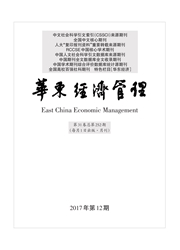

 中文摘要:
中文摘要:
文章采用实验研究的方法,检验锦标赛契约与固定绩效契约两种不同的激励契约形式对异质代理人努力水平及其收益的影响,同时分析了奖金内生与奖金外生两种不同的分配方式下代理人努力水平的变化情况。利用对107个被试进行的7个实验,得出如下结论:第一,对于被试整体和高能力者而言,在特殊风险占主导时,较之于固定绩效契约,锦标赛契约更能激发被试的努力水平,但被试每轮实际收益要低一些;在共同风险占主导时,两种契约方式下被试的努力水平和实际收益没有显著差别。第二,对低能力者而言,锦标赛契约和固定绩效契约对其努力水平没有显著影响,但锦标赛契约下被试的每轮实际收益比固定绩效契约下的实际收益更低。第三,在奖金内生机制下,高能力者与低能力者的努力水平要低于奖金外生机制下的努力水平;相应地,其每轮收益则高于奖金外生机制下的收益。
 英文摘要:
英文摘要:
This paper is intended to test the impacts of tournament contract and fixed performance contract on the level of ef- forts and earnings of heterogeneous agents by employing an experimental approach. A comparison between agents' effort in both endogenous and exogenous allocation mechanism of prizes has also been presented. From the seven experiments of 107 agents, the main conclusions of this paper can be summarized as follows. Firstly, when the special risk is dominant, the efforts of all agents and high-ability agents are higher in tournament contract than that in fixed performance contract, whereas they get lower actual earnings. There is no significant difference in efforts and earnings between two contracts when common risk is dominant. Secondly, both two types of contracts have no significant impact on the efforts of low-ability agents, whereas they make lower earnings in tournament contract than that in fixed performance contract. Thirdly, the efforts of agents with high-ability and low-ability are lower in the endogenous allocation mechanism of prizes than that in the exogenous context. Accordingly, agents' earnings are higher in the endogenous context than that in the exogenous context.
 同期刊论文项目
同期刊论文项目
 同项目期刊论文
同项目期刊论文
 期刊信息
期刊信息
